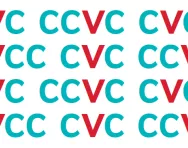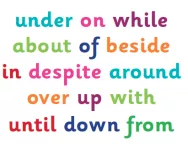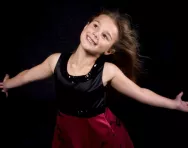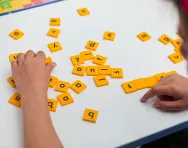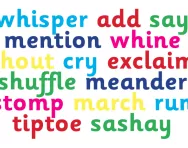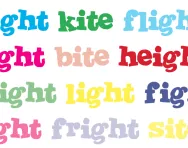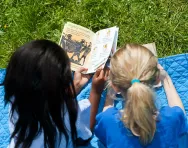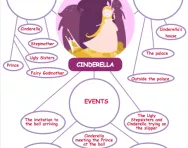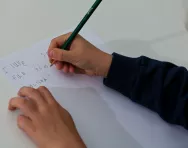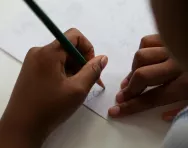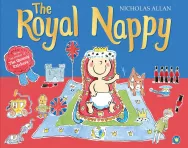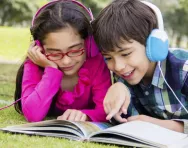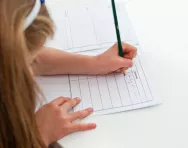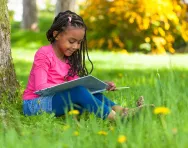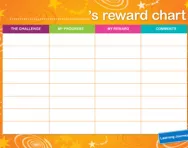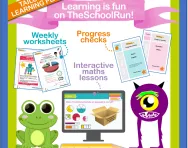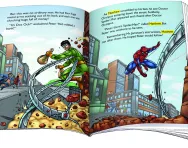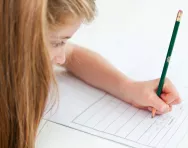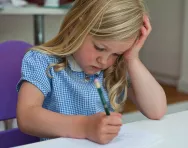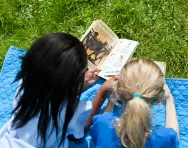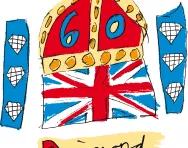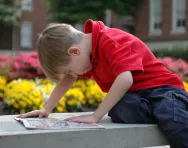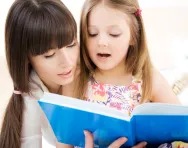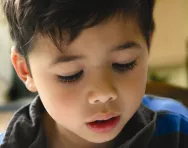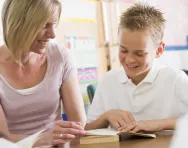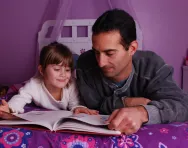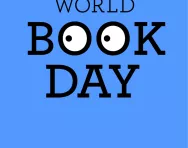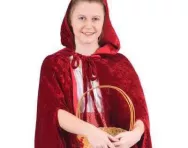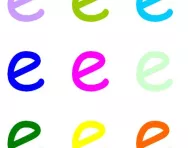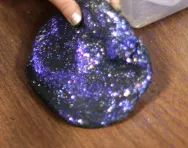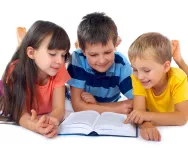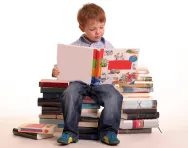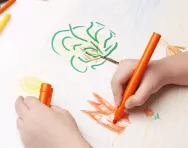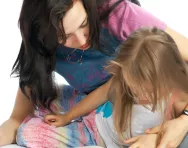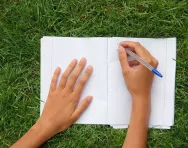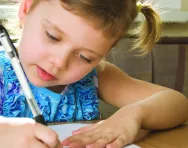Eyfs English articles
What are CVC words, CCVC words and CVCC words?
Phonics teaching introduces children to CVC words (consonant vowel consonant), then CCVC words (consonant consonant vowel consonant) and CVCC words (consonant vowel consonant consonant). Understand how teachers will present the different words in the classroom and how to support your child's learning at home in our parents' guide to decoding and blending sounds.
What are prepositions?
Prepositions are some of the most common words in the English language. We explain how your child will learn to use them in primary school and why time connectives are so important in non-fiction writing.
Encourage a love of drama and the stage
Whether your child is a diva in the making or more inclined to be backstage crew, drama and acting could help develop skills that will offer a boost in many areas of life, says Lucy Dimbylow.
10 ways word puzzles can help your child
Crosswords, word searches and hangman aren’t just handy ways to keep your child quiet for five minutes; they could also boost their learning in some surprising ways. Here’s how…
Common handwriting problems and solutions
Illegible handwriting? Huge letters? Strange pencil grip? Struggles with left-handed writing? If your child is finding handwriting hard, perhaps it’s one of these four issues. Find out more about how to tackle these common problems with advice from the National Handwriting Association's Angela Webb.
What are powerful verbs?
Using powerful, descriptive verbs can make a big difference to your child's writing. We explain what parents need to know about powerful verbs (and ordinary verbs!) when helping with primary-school homework.
What is rhyme?
From reading rhyming poems to identifying rhyme schemes and rhyming couplets, we explain everything you need to know to help you support your child's love and learning of poetry at home.
What is non-fiction?
Non-fiction texts are read, studied and written throughout the primary-school years. Our parents' guide covers instruction texts, recounts, information and explanation texts, persuasive writing and argument texts and explains what you need to know to support your child.
What is a spider diagram?
Spider diagrams are common planning tools in the primary-school classroom, used in science as well as literacy. We explain what you need to know to help your child use a spider diagram when preparing a fiction or non-fiction piece of writing.
Dyspraxia: parents' questions answered
Dyspraxia, or Developmental Co-ordination Disorder (DCD), causes problems with language, perception and thought – most specifically issues with co-ordination. Around one in seven children has this learning difficulty and if your child is affected it can be hard to know how to help for the best. Here we answer some of the most common questions parents ask.
Your child's new school year preparation plan
Each year group brings fresh challenges in literacy and numeracy. Want to give your child a head start? Primary teacher Phoebe Doyle offers some easy-to-action advice on tackling an objective from the year group your child is about to enter during the summer break.
10 of the best children's books for summer 2013
Mysteries, thrillers, supernatural tales and chick lit – we all want to pack a good book to read on holiday, whether we’re 4 or 104! From historical fiction to the new laugh-out-loud classic from Jeremy Strong, this super selection of books for KS2 readers means the whole family can have a fiction-packed break.
Listen and learn: why audiobooks are great for your child
Whether your child is a voracious reader or is horrified at the suggestion of picking up a book, audiobooks could have some surprising benefits. Lucy Dimbylow explains how they could boost literacy skills, and shares our pick of the best to get you started.
21 things every parent needs to know about cursive handwriting
Learning to print letters was hard enough, and now your child is being encouraged to join them up. Lucy Dimbylow explains everything you need to know about cursive writing, and how you can support your child at home.
19 unusual ways to encourage your child to read
Some children can’t wait to get home from school, throw themselves on the sofa and get lost in Hogwarts; others wouldn’t pick up a book unprompted if their games console depended on it. Lucy Dimbylow offers some unusual suggestions to get them reading – and enjoying it.
The Learning Journey reward chart and certificates
Support your child's Learning Journey with these fantastic motivational resources – a colourful reward chart where you can set your own challenges and choose rewards together, and printable certificates to celebrate success.
How the Learning Journey works
Find out how our fantastic primary school learning programme – The Learning Journey – could benefit you and your child as well as full details of how to use the reward charts and certificates!
Best children’s books about Christmas
Get into the festive spirit with some Christmas-themed bedtime stories – perfect to snuggle up to in front of the tree, sipping mulled wine (you) and hot chocolate (them). From wintery classics to new favourites about Father Christmas and his life in the North Pole, this reading list is suitable for all ages.
Best personalised books for children
Give your child a really unique introduction to the world of fiction with a personalised book – after all, who wouldn’t want to be the hero or heroine of a fantastic adventure? Seeing their name – and face – in print, alongside favourite characters, will be a thrill whether they’re just starting to read for themselves or ready to embark on classic literature. We pick the best personalised books where your child has the starring role.
7 common dyslexia questions answered
If your child is dyslexic you'll want to help them get the support they need at school and at home. Dr John Rack, Head of Research, Development and Policy at Dyslexia Action, answers common questions about dyslexia identification, homework and tutoring and suggests sources of further information and advice to help you help your child.
Handwriting practice: what all parents need to know
If you’re worried about your child’s handwriting and want to help them improve, you’re not alone – handwriting is an essential skill, but we all have to learn it, and it’s a very complex task. Legible, neat handwriting takes lots of practice – here are a few things to keep in mind when you’re working with your child at home.
7 of the best children’s reads for summer 2012
Mysteries, thrillers, supernatural tales and chick lit – we all want to pack a good book to read on holiday so make sure your child isn’t left out! From historical fiction to the new classic from Jacqueline Wilson, this super selection of books for KS2 readers means the whole family can have a fiction-packed break.
Best royal reads for kids
Make sure the whole family feels part of royal festivities and include some celebratory reading in your schedule. We’ve picked some great options for you to read out loud and for independent readers. Time to hang the bunting and snuggle up with a book…
Using comics to improve your child’s literacy
Struggling to get your child to pick up a book? A comic might have more appeal – and some surprising literacy-boosting benefits, especially for boys. Lucy Dimbylow explains why you don’t need to be snobbish about your child’s choice of reading material.
10 ways to boost phonics confidence
How should you support your child’s learning and first reading at home to help them prepare for the Year 1 Phonics Screening Check? Teacher and Y1 parent Phoebe Doyle offers some practical tips and ideas.
School reading schemes explained
Ask any parent of a Reception child about Biff, Chip and Kipper, and they'’ll know exactly who you'’re talking about. But just how do primary school reading schemes work, and how can you tell if your child is progressing at the right rate? Primary school reading schemes often use book bands to categorise reading materials. Book bands help determine the appropriate reading level for each child. Lucy Dimbylow puts these questions to the teachers who use reading schemes in the classroom.
Teachers’ top 10 classroom discipline tricks
Does every homework session end in tears and tantrums? Or are you losing sleep over getting your child to learn their spellings? Lucy Dimbylow asked the people who manage 30 children at a time (gulp!) – teachers and teaching assistants – to share their tried and tested tricks.
Reading to learn: how to get the most from reading with your children
Reading with your children at home not only lets them practise new words and sounds, but it can also help to improve their reading comprehension skills. Education writer and primary teacher Phoebe Doyle gives her top tips on helping to enrich reading time to prepare them for KS1 English SATs.
6 World Book Day activities for EYFS, KS1 & KS2
Celebrate World Book Day with these fun ideas for children of all ages – get a free book, join a reading group, raise money for charity and more!
No-sew costumes for World Book Day
As the children get excited over book week, it can leave us parents feeling more than a little stressed! Time-poor and not at all sewing-savvy Phoebe Doyle has some simple suggestions for effective World Book Day costumes that won’t break the bank.
What is ‘magic e’ or a split digraph?
The way children learn to spell using phonics and phonetic terminology can cause utter bewilderment to parents trying their best to help at home. Primary teacher Phoebe Doyle is on hand to explain the ‘magic e’, or split digraph.
4 ideas for homemade playdough
Help your child develop the motor skills needed for handwriting with these no-skills-needed ideas and recipes for playdough and similar slimy substances – ideal for sensory play and scientific investigations!
11 things parents need to know about the National Curriculum
It’s the basis for what your child learns every day, but what exactly is the National Curriculum and what does it teach? Education writer and primary teacher Phoebe Doyle offers some clarity.
Book-bored to bookworm: expert tips to get your child reading
Worried that your child always chooses screen time over books? Mum and teacher Phoebe Doyle asks the experts about turning your child into a busy bookworm.
How to create a reading-friendly home
Switch off the screens and help make reading a fun, relaxing and engaging pastime for your child by implementing these expert tips from primary school teacher and parent Phoebe Doyle.
What your child learns in Reception
Understand what your child is learning in their first year of school, and find out how you can help them do their best.
10 ways to bring books to life for your child
Want to encourage your child to read more, but not sure where to start? We speak to education experts about how you can turn reading from a homework chore into a favourite activity.
8 great handwriting activities
Put the fun into handwriting practice! From everyday shopping lists to rainy day bookmaking, there’s something to inspire children of all ages and interests to pick up a pencil, says teacher and mum-of-two Phoebe Doyle.
Phonics and sounds explained
Wondering what those noises that your child has been chanting to you are? They're probably practising their phonics sounds – we explain what the sounds of phonics are, and how you can help your child learn them in Reception and beyond.
Handwriting dos and don’ts
Practising handwriting at home doesn’t have to be about copying out rows of letters and reaching writing targets. Make writing fun with these helpful tips from primary school teacher Phoebe Doyle.
